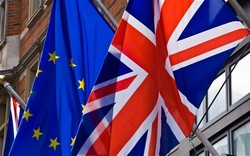
The debate on whether to vote in or out in the referendum has kicked off rather sooner than expected. It seems that the Prime Minister is keen to hasten the whole event in an attempt to get the thing over and done with as soon as possible.
His promenade around European capitals visiting influential leaders is perhaps a distraction, with the intention of creating a ‘smoke screen’, behind which the pro-Europeans, can hide the lack of progress towards reforming Great Britain’s relationship with Brussels. He is so far, making requests for easy and relatively modest reforms.
The message from Tory headquarters in the lead up to the General Election was that only by voting Conservative would we have the opportunity to vote on an in/out EU referendum. It is absolutely certain that amongst other issues, this would have swayed many voters away from UKIP, thus helping to secure the resulting conservative majority.
Some MPs and others, now feel decidedly disillusioned having heard Cameron’s threat to sack Government Ministers who do not back his position on how to vote. He is also stacking the odds against a ‘fair’ campaign by changing the rules to enable Whitehall to spend whatever it likes – potentially giving an unfair advantage to one side of the argument, which will probably be to stay in the EU.
It is noteworthy, as South East MEP Daniel Hannan frequently voices, that it is the multinational giants, mega-banks and the Confederation of British Industry (CBI) which loudly promote continued membership of the EU.
It is clear why multi-nationals see EU rules as a useful tool to raise barriers against smaller competitors, who can’t easily afford the compliance costs. However, perhaps Mr Cameron should listen to successful British exporters such as JCB, Dyson and others which have said we would be better off out – and able to trade more freely with non-EU states. As the MEP asks, ‘should we listen to award winning British manufacturers, or disgraced banks?’
No one is talking about Britain leaving the European markets. What we need is free trade rather than political union. Only last week the German Chancellor, Angela Merkel, whom the Prime Minister was cosying up to, said, ‘We need a political union, which means we must all gradually cede powers to Europe and give Europe control. We cannot just stop because one or other does not want to join in yet.’
The Swiss are doing well. They top the European wealth league and according to the United Nations, have the second- best quality of life in the world. Switzerland, from outside the EU, sells four and a half times as much per capita proportionately, as we do from inside.
There are opportunities beyond the tired and dated trade bloc on our doorstep. We are historically a trading nation and should raise our horizons and our ambitions to be an independent nation away from the increasingly powerful grip of unelected foreign officials. We must also be allowed to protect our borders, which will never happen while we remain within the EU.
The debate up until the referendum will be interesting. I hope it will not become nasty or in any way reflect what we observed in Scotland last year. There will be top Tory supporters breaking ranks with David Cameron, as we saw last week when the Vice President of the National Convention of the Conservative Party, Steve Bell, declared his support for the ‘Out’ Campaign. Having voted to stay in the European Community in 1975, he now believes that what was a common market has become a “federalised mistake.” Good for Steve, he is standing up for his principles and what he considers to be best for Great Britain. I only wish there were more like him within Westminster.
The supermarket’s continuing price war will not help the farming community. Food prices have fallen 0.9 per cent in the past year as the major supermarkets have tried to counter the rise of Aldi and Lidl. By reducing the cost of staple items such as milk, bread, butter, meat and sugar, this continues to put pressure upon already struggling farmers as commodity prices continue on a downward spiral.
Shoppers see their basket of everyday produce at its lowest since 2011, and experts say the current competition between major retailers could well see much larger price reductions. For farmers unable to diversify to create alternative income for their farms, this will create additional stress, belt tightening and some will throw in the towel. I hope that their local communities will know when farmers are struggling, and will offers support, friendship and understand their difficulties. Farming can be an isolated and lonely existence even at the best times.
Carola Godman Irvine

 RSS Feed
RSS Feed